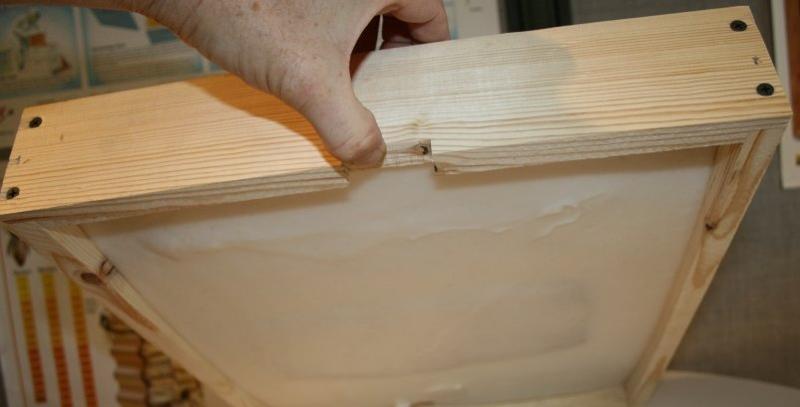We are David and Sheri Burns from Long Lane Honey Bee Farms and Honeybeesonline.com. Have you seen the big write up on our family business in the August edition of the American Bee Journal? They wrote a 6 page article!!
 |
Start Now To Get Your Bees Ready For Winter
This is our popular class on how to get your bees through the winter.
Register Now! We are located in east central Illinois. Take the trip and take a class with us on how to get your bees through the winter. You need to start making winter preparations as early as August.
"Get Your Bees Through The Winter" August 18 1:00am- 6pm Price: $69
20 seats are taken but we still have a few more spots available!
Secure your seat now by clicking here to reserve your spot with a credit card. It may be summer but so many beekeepers lose their hives in the winter. Don't become another sad statistic.
Last Beginners Class For The Year Oct. 14, 1pm-6pm. Almost full. Our basic classes are very thorough. You'll learn about basic honey bee anatomy, biology, bee stings, honey and other resources from the hive, common pests and diseases such as how to deal with varroa mites, hive equipment and how to use each piece, seasonal management, how to harvest honey, how bees make honey, wax, and what they do with propolis. This class will inform you of the important role honey bees play in pollinating our food and how honey bees are vital to a self-sustainable lifestyle. Learn from EAS Certified Master Beekeeper David Burns as he guides you through the entire process of keeping honey bees. He'll show you how to install a package of bees, how to inspect a hive, what to look for and how to manage your colonies for maximum honey production. (Check on legal issues, registration and permits through your local town board, and your state Department of Agriculture).
Winter-Bee-Kind Winter Feeding System For Sale Now!
 |
Our WINTER-BEE-KIND insulates the top, provides upper ventilation and comes filled with carbohydrates and protein for the bees to eat should they need it during the winter. Each candy board also has protein embedded into the candy sugar to give the bees the protein they need in their feed as well. This WINTER-BEE-KIND board insulates, ventilates and feeds your bees as a single unit. This is an emergency winter feeding solution, that should only be used when it's too cold for bees to continue flying, which is typically when daytime temperatures are consistently below 50 degrees.
We use a special insulation that is backed with a thin layer of metal to help reduce condensation in the hive. It has a special upper vent which also serves as an exit and entrance for bees(increases cleansing flights) as well as a place to help excess condensation escape. The WINTER-BEE-KIND also comes with a recipe on how to make our candy so that you can refill your candy section when needed, usually about once a month, depending on how much honey is in the hive.
Order now! We begin shipping around November 1st (not on) and only when the weather is cool enough to ship. Click here to order now.
Easter Apicultural Society 2017 Was Great!
My week in Newark, Delaware at the Eastern Apicultural Society conference was great. It was so fun seeing old friends and teaching new beekeepers. I enjoyed teaching three classes and testing new Master Beekeeper candidates. It is so awesome to observe how hard they work and prepare for three grueling days of testing to try to become certified master beekeepers. I encourage all beekeepers to make next year's EAS conference:
AUGUST 13-17, 2018
HAMPTON ROADS CONVENTION CENTER
1610 COLISEUM DR, HAMPTON, VA
FEED IN LATE SUMMER AND FALL
It is essential that we feed bees in late summer and fall. Don't trust fall nectar flows. Our feeding board is perfect for fall and spring. Holes are lined with screen to make changing jars easy. Feeding your hive will speed up drawing comb.
Our Burns Bees Feeding Systems have been a huge hit over the last three years. They are available for 10 or 8 frame hives, even 5 frame nucs. Order now.
Start With Two Hives For Next Spring
There's an old saying that says 2 is one and one is none. Applied to beekeeping this could mean that if you have two hives but you lose one you still have one. But if you start with one and lose it, you have none. Starting with two hives allows you to equalize your hives and even swap resources between hives as needed. We offer our popular Freedom Kit, 2 hive kit. Check it out now.
Your Bees May Do Some Strange Things This Fall. I Noticed Pollen Piled Up Under My Hive Already. Do You Know What Causes This?
Knowing what to do and when is the tricky part of beekeeping. Let me be your mentor. I have a special mentorship program called BeeTeam6 where you can call, email or text me concerns or questions you are having about your bees. Plus you receive a weekly tip and a weekly instructional beekeeping video. Even if you are not keeping bees yet, this is perfect to help you gain the education you need before you start. Or if you are starting this year, why not have the extra peace of mind by having someone you can consult. Read more...
Queens!
Our next batch of queens will be available to be shipped out on August 15-16. This may be the last month we will have queens available. Check out availability at our queen center.






